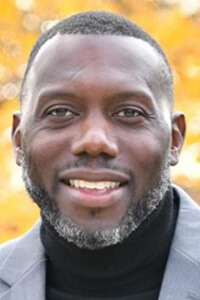
Meet Boston, the city’s destination marketing organization, launched a workforce development initiative to address labor shortages in tourism and hospitality, but also to help Boston’s hospitality workforce better reflect the people who live there.
Two of three jobs that were lost during the pandemic were in the hospitality industry, making it the sector of the U.S. economy hardest hit by the COVID-19 pandemic, according to U.S. Bureau of Labor Statistics (BLS). And although restaurant staffing had recovered to pre-pandemic levels by the end of 2023, according to BLS, workforce recovery in the hotel and lodging industry is still lagging, despite the fact that since 2020, it has had the highest hiring rate among all industries. Survey results released by the American Hotel and Lodging Association in February indicated that more than two-thirds of hotels were facing staffing shortages, and 12 percent reported that they are “severely understaffed.”
Adding to the challenge: The hospitality industry loses workers at the highest rate of any employment sector. The industry’s rate of burnout has also been the highest of any industry, according to a 2019 survey conducted by Paychex, the human resources company.
Understaffing at venues surfaced as a major pain point in Convene’s 2023 Salary Survey. And while responsiveness to event planners has improved, according to Knowland and ConferenceDirect’s fourth annual “State of the Meetings Industry” report released earlier this year, nearly half of planners surveyed listed staffing levels, the level of experience, or responsiveness as their top area of dissatisfaction with hotels and event venues.

Hilina D. Ajakaiye
For cities for whom travel, tourism, and group business represent a big chunk of their economy, recruiting and retaining hospitality workers is a critical challenge. Such is the case in Boston, where hospitality and tourism is the city’s third-largest industry. Meet Boston, the city’s destination marketing organization, is working to solve the issue. Last fall, Meet Boston launched a workforce development initiative to address labor shortages, beginning with hotels. But beyond shoring up that gap, the initiative is designed to help Boston’s hospitality workforce better reflect the people who live there.
Although Boston has been a majority-minority city since 2000 — 43 percent of its current residents identify as non-Hispanic white — employment of people of color historically has trailed white employment in the city. At Meet Boston, “we work really hard to make sure that we are inclusive in our hiring practices, and our partners are dedicated to doing the same,” said Hilina Ajakaiye, Meet Boston’s executive vice president, who is leading the initiative. “We want make sure that, as we think about what post-pandemic recovery looks like for the hospitality workforce, that we’re focusing on making sure it’s diverse.”
Supplier Diversity
To help meet both those goals, Meet Boston has partnered with Conan Harris & Associates, a Boston-based executive strategic planning, coaching, and consulting company that specializes in helping businesses and organizations diversify their leadership and personnel pipelines. As part of the initiative, the firm will find qualified, vetted job candidates from diverse backgrounds for job openings for the hospitality employers who are part of the project’s rollout, including 30 hotels, Ajakaiye said.

Conan Harris
The initiative differs from workforce development programs that focus on specific age groups or on filling entry-level positions, although some positions that they work to fill may be entry level, said Conan Harris, the consulting company’s CEO and founder. Others, he said, will be at managerial and senior leadership positions.
The workforce development initiative is designed to be an opportunity to get more people of color into upper management within Boston’s hospitality and tourism ranks, said Ajakaiye, who is the first Black executive hired by Meet Boston. When Ajakaiye, a former retail grocery chain executive, began working for the DMO in 2020, she said one of the things that she “quickly realized is that, within Boston, the hospitality industry is definitely diverse, but not within the leadership ranks.”
To find candidates, Conan Harris & Associates is turning to sources including hospitality and event management programs at Boston-area colleges and universities, Harris said, and other local and state networks, including a task force whose members include the Black Economic Council of MA, the Urban League, Amplify Latinx, the Greater Boston Chamber of Commerce, and more.
His company is looking for qualified people who want to work in the industry, are passionate about it, and are looking to engage, Harris said. The employers “will still do their due diligence, [job candidates] will still go through the HR process of interviewing, but we’re going to give them a spring forward,” Ajakaiye said.
‘We’re Going to Stay Close’
Meet Boston and Conan Harris & Associates are taking a highly hands-on approach to make sure that employers and job candidates are a good fit and that professionals who are offered jobs have all the training and support they need, Ajakaiye said. Successful hires will all go through employers’ onboarding, “but behind that,” added Harris, “is how do we make sure that the person finds a level of success, not just for getting a job, but keeping it?”
As part of that, under the project’s plan, Harris’s firm will not only offer coaching and mentorship services to job candidates through the interviewing and hiring process, but for three months after they are hired.
The key, Ajakaiye said, is not just to place people and leave them — “We’re going to stay close.” She and Harris also are establishing a Boston mentorship pipeline for the hospitality industry, she said, adding that it has been a challenge for her personally to find mentors in the industry. Over time, as the number of participants in the program grows, so will the community of professionals who can mentor and support one another, she said. “It’s hard to retain anyone in the industry for more than two years,” Ajakaiye said. “Instead of hiring people and losing them every two years, why not create programs where we mentor them and make sure they succeed?”
The aim during the initiative’s first year is to have at least one successful placement at each of the hotels that are part of the project — “although I think we can do two,” Ajakaiye said. “The goal is to create a very, very good process. And once we do it, we’ll continue to do it annually or on a rolling basis.
“I think what makes this initiative special and important and different is that we’re powering the future workforce for hospitality and tourism and events in the city of Boston,” she added. “I believe in the marathon, not the sprint.”
Barbara Palmer is deputy editor of Convene. Ascent is supported by the PCMA Foundation.
